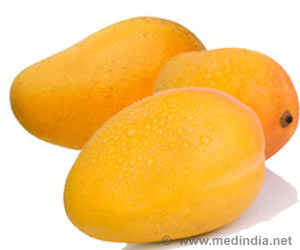- Blina, a novel immunotherapy, proves gentler and more effective than traditional chemotherapy
- Portable and administered on the go, Blina allows children like Arthur to lead a more normal life during treatment
- Chief investigator Prof Ajay Vora anticipates Blina replacing up to 80% of conventional chemotherapy
In a significant development in cancer treatment, some children are now receiving a new type of drug that is far less toxic than traditional chemotherapy. Arthur, an 11-year-old with blood cancer, was among the first to try this innovative therapy at London’s Great Ormond Street Hospital, and the results have been nothing short of remarkable (1✔ ✔Trusted Source
Blinatumomab Improves Survival in Children with Relapsed Leukemia
).
The drug, known as blinatumomab or blina, is being hailed as a “little bit of sunshine” by Arthur’s family. Unlike conventional chemotherapy, blina worked effectively without causing severe side effects, allowing Arthur to maintain a more normal life during his treatment.
Arthur, who initially underwent chemotherapy that proved insufficient, found hope in blina, which is already licensed to treat adults with cancer. The drug is an immunotherapy designed to target cancer cells, enabling the body’s immune system to recognize and eliminate them. The precision of blina’s approach ensures that healthy cells remain untouched, a stark contrast to the collateral damage often caused by chemotherapy.
Administered as a liquid through a thin plastic tube attached to a vein, blina is delivered by a battery-operated pump. This setup allows for continuous treatment over several months, with a portable backpack carrying all necessary equipment. Arthur’s “blina backpack” made it possible for him to enjoy activities such as playing on swings in the local park while receiving treatment, a far cry from the confinement of a hospital room.
Revolutionizing Treatment: The Gentle Power of Blinatumomab
Unlike the debilitating effects of intensive chemotherapy, blina did not leave Arthur too weak to enjoy his days. His mother, Sandrine, expressed relief at the shift from a treatment that made her son feel worse to a more manageable and gentle alternative. Sandrine described their previous experience with chemotherapy as a “constant challenge,” acknowledging the difficulty of watching her son’s body endure the harsh effects of the drugs intended to cure him.
Medical experts are optimistic about the potential of blina, suggesting that it could replace a significant portion of traditional chemotherapy, reducing its intensity by up to 80%. This development is particularly promising for children diagnosed with B-cell acute lymphoblastic leukemia (B-ALL), a condition affecting approximately 450 children in the UK each year.
A New Chapter: Blina’s Promise for Pediatric Cancer Care
The success of blina represents a step towards a more patient-friendly and effective approach to cancer treatment. Chief investigator and consultant pediatric hematologist Prof Ajay Vora emphasized the gentler nature of blinatumomab, describing it as a “kinder treatment” compared to traditional chemotherapies.
While other targeted immunotherapies, such as chimeric antigen receptor T-cell therapy (CAR-T), are available, blina stands out for its cost-effectiveness and simplicity. The drug’s potential to replace a substantial portion of chemotherapy offers hope for a brighter and less arduous future for children facing cancer diagnoses.
For Arthur and his family, the turning point came at the beginning of the New Year when they received the news that blina had successfully eradicated the cancer. With the removal of the tubing from Arthur’s arm, the family celebrated not only the end of treatment but also a new chapter of hope and health.
Advertisement
“As we bid farewell to chemotherapy challenges, Blina opens doors to a healthier future for children battling cancer.”
Reference:
- Blinatumomab Improves Survival in Children with Relapsed Leukemia – (https://www.cancer.gov/news-events/cancer-currents-blog/2021/blinatumomab-relapsed-b-cell-leukemia-children-young-adults)
Source-Medindia



